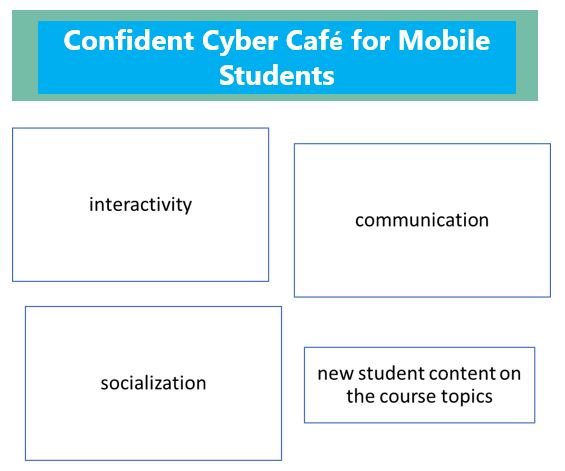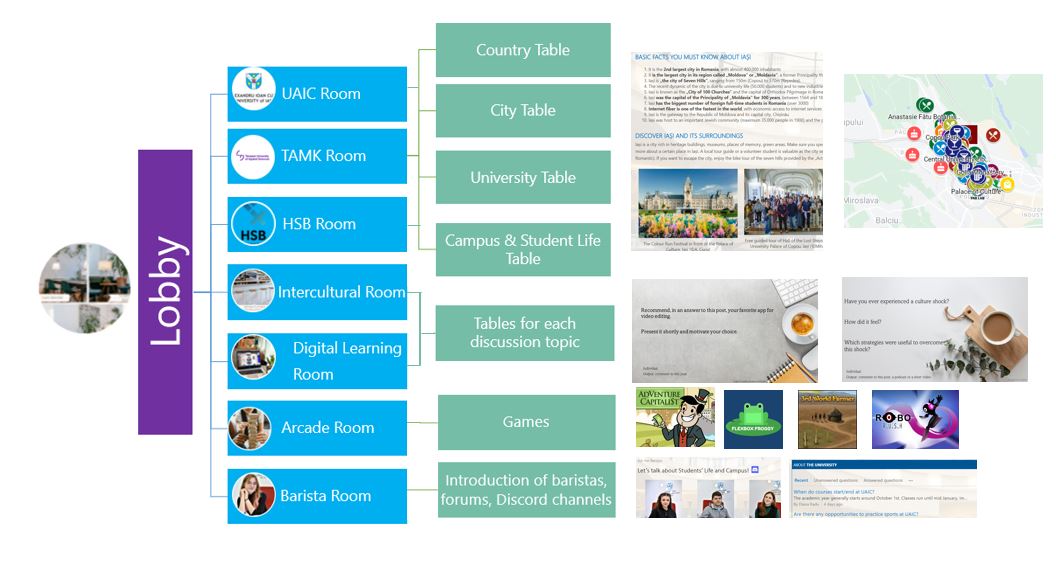Confident Cyber Café is conceived as a virtual social meeting place for mobile students where they can contact each other, chat on various topics under the guidance of a facilitator (a representative of the students' associations such as the local ESN) and exchange ideas on the topics tackled in the Intercultural Communication and Digital Learning modules (under the supervision of a mediator – professor).
The model of the Cyber Café can be replicated into a wide range of universities that are involved in the Erasmus programme. At the same time, we will be very happy to host information about your organization on our platform – just let us know!
The Cyber Café welcomes the students before, during and after their mobility, thus becoming a melting pot of cultures and identities. It fosters interaction, proactivity, communication and a sense of belonging to a community (contributing to the social and cultural integration of students). The Cyber Café is intended for both incoming and outgoing students from the partner universities and it started its functioning at the same time as the Intercultural Communication and Digital Learning modules.
The Confident Cyber Café is composed of two main parts: one dedicated to predefined topics (chosen by the professors) on the modules that the students attend; a forum/portal of discussions related to students' integration (accommodation, canteens and restaurants, health care, safety issues, extracurricular courses, etc.) at the host universities.
The first part is moderated by the professors who worked on the learning modules (Intercultural Communication and Digital Learning) while the forum is moderated by the local students' representatives as well as by the staff working in the International Relations offices.
| 
|
The necessity of the Cyber Café is two-fold: on one hand, it responds to the students' need to belong to a community during their academic activities, it will be a virtual place where they can find support for the problems they might face and on the other hand it will be a useful instrument for the partner universities to monitor the students' progression, learning track and stay in contact with them. Even though it can never replace a physical environment for interaction, it can be a substitute where the mobile students can interact with other students, with professors and staff from the host organizations before their physical arrival in the host country.

